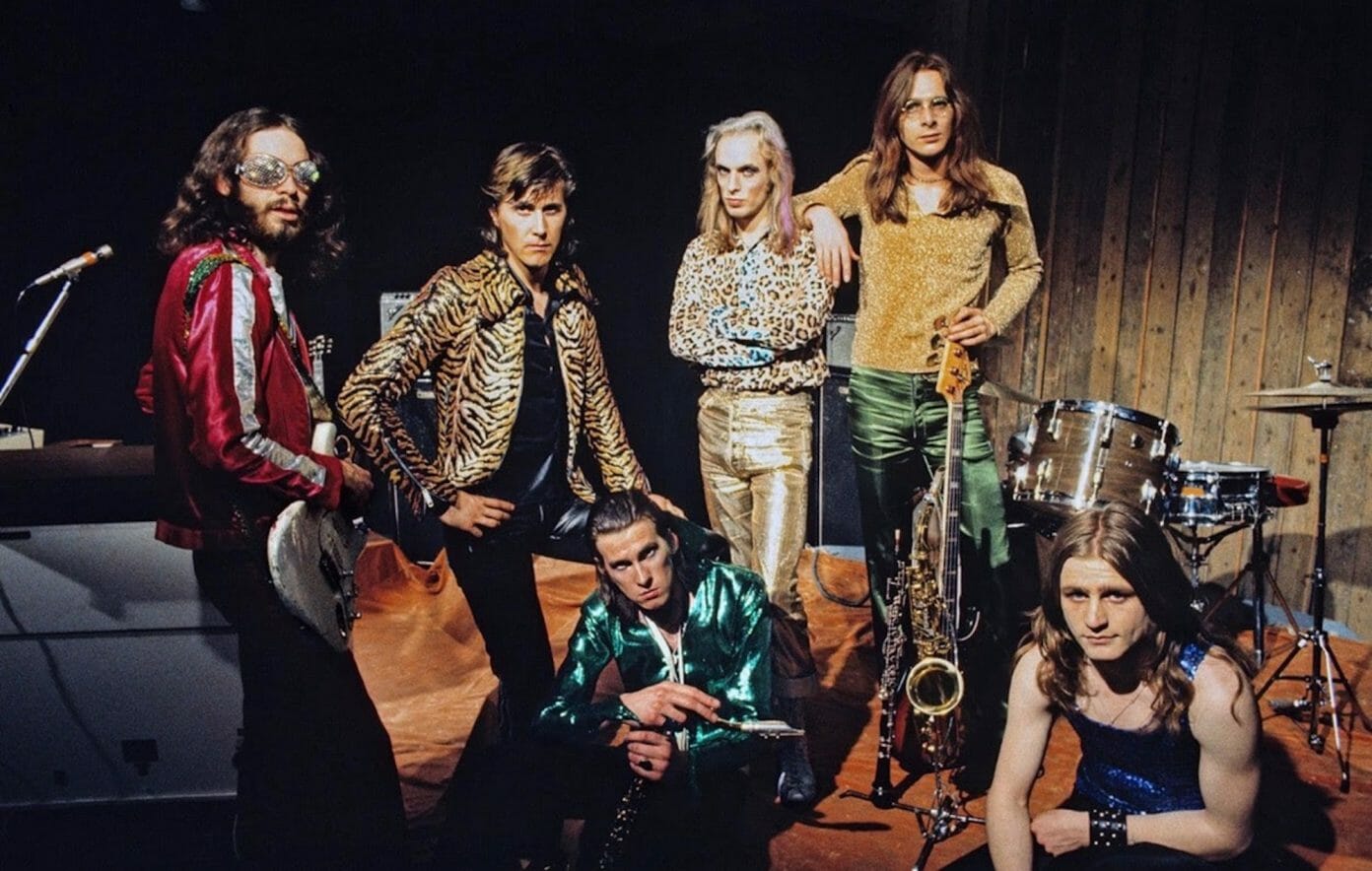Reflections: Roxy Music

photo credit: Brian Cooke
***
On stage for Roxy Music’s 50th anniversary tour, guitarist Phil Manzanera maintains a tricky balance between opposing forces: order and upheaval, structure and intuition.
“One aspect is serving the song, where you’re not trying to interfere with the vocals,” he says. “The other is the totally free bit, where I can go wherever I want. It’s totally different every night. Nothing is planned, and you’re in the moment. That—for me as a guitarist—is the most fun. For instance, when I get to play a solo at the end of [‘In Every Dream Home a Heartache’], my world just opens up and I’m transported to wherever my guitar takes me.”
Manzanera joined the glammy, innovative art-rock combo in 1972, shortly before the sessions for their self-titled debut LP. And in the five decades since, through seven more studio albums, multiple hiatuses and his own ventures— producing and touring with David Gilmour, forming both the experimental supergroup 801 and the prog-rock act Quiet Sun—he’s stayed ready for Roxy Music to rev its engine.
“It was a band in some sense but, in another sense, it was a collective,” he says. “Immediately after the second album [1973’s For Your Pleasure], everyone started doing solo projects and a bit of Roxy. We’re still doing the same thing 50 years later. It’s a very satisfying place to be. You always have to attempt to do new things and change your method of working if you want to enjoy doing music for a whole lifetime.”
Still, even if the group’s mindset hasn’t changed, Manzanera acknowledges that this 50th anniversary tour— which also features frontman Bryan Ferry, woodwind player Andy Mackay and drummer Paul Thompson—is a big deal. It’s their first in 11 years, arriving after their 2019 Rock and Roll Hall of Fame induction—and with most of the U.S. dates featuring support from St. Vincent, an obvious spiritual successor in her marriage of svelte hooks, avant-garde arrangements and high-concept visual theatrics. “When I heard that she was our special guest, I thought, ‘Oh, my God! Who thought of that?’” he gushes. “She’s so good. I can’t say enough good things about her. I have spent many evenings listening and watching on the side of the stage.”
Manzanera prepped for the trek by revamping his guitar setup, spending about three months dialing in his vintage tones and adding in some modern pedals and tech. (He even detailed that painstaking process in an eight-part YouTube series.) And, as their career-spanning setlist started to form, he took liberties with some parts to better highlight their expanded live lineup. The best example could be “Out of the Blue,” a nervy rocker he co-wrote for 1974’s Stranded.
“By that stage [in the band], we had a fantastic producer, Chris Thomas, who’d worked with George Martin,” he recalls. “We were learning all the time, in the tradition of The Beatles and Abbey Road studios and all the experiments they’d done there. By that stage, [original member Brian] Eno had left, and we had this young virtuoso guy, Eddie Jobson. I sort of said, ‘I could play a guitar solo [on ‘Out of the Blue’], but we have this amazing technical violinist.’ Over the years, we’ve all played the song in different configurations. I even played it with my offshoot bands without a violinist. When you get to the end bit, you go, ‘What the hell can we do?’ On this tour, we actually scored out the violin part, and we attempt to play it with two guitars. It becomes a little like prog-rock because it gets very technical at one point. I just love it. It’s something no one’s heard.”
That’s the key to all of it, really: Even in celebrating their past, Manzanera can’t completely go through the motions. It’s the reason, in retrospect, he’s glad Roxy Music splintered after recording 1982’s Avalon, a set of sleek sophisti-pop that became their biggest commercial success.
“Looking back, doing Avalon 2 would have been a mistake,” he reflects. “It would have been same ol’, same ol’. Also, we gradually get bored working with each other and want fresh input. Commercially, if we’d had proper management and all that, then they probably would have said, ‘You’re just about to make it in America, and you should continue.’ But the thing about Roxy is there were never any discussions. [Laughs.] Bryan said, ‘I’m going off to do a solo album,’ and I said, ‘Well, right, what am I going to do?’ You just follow your nose.”
Indeed, Roxy Music have been protective of their legacy— even scrapping around “10 or 12 songs” they recorded several years ago for a potential studio LP. “I’ve got them on my laptop and, every now and again, I listen to them, hoping it will sound amazing,” Manzanera says of the tracks. “But I go, ‘Nah. Whew, that was lucky. We swerved a bullet there!’ [Laughs.] It’s very much about the chemistry, what’s happening in the musical ether around you. I can’t quite explain it, but [the music] just didn’t quite excite enough, and then it becomes too forced.” The guitarist is Zen about the band’s future, knowing they’ll probably link up again down the road—assuming the collective spark strikes: “By sort of happenstance, after so many years, we usually say to each other: ‘You fancy doing some Roxy?’ And if the planets align, we say, ‘Sure.’”




















